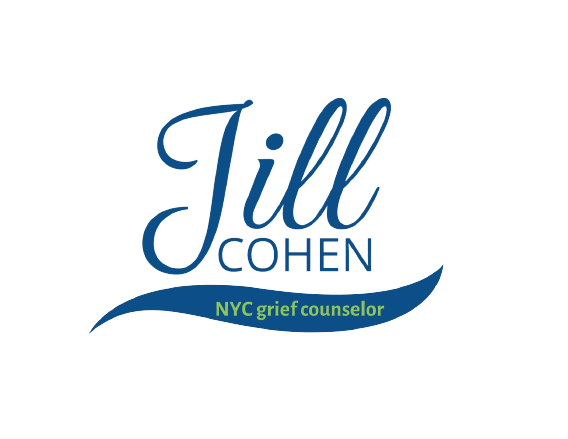When a Close Friend Dies
6 Minute Read
Photo by Chang Duong on Unsplash
When The Worst Happens
In life, we often fear the worst – the death of a parent, a sibling, a spouse or a child. We expect that if such a death happens, it will be the most difficult, shattering time in our life.
We try not to imagine what it would be like for us when a close friend dies.
A friend’s death is not an experience we can understand until it happens. And then the grief can come over us so heavily that we don’t even know what to with it.
Any loss can cause pain, but the grief from the loss of a best friend can be particularly devastating.
“Forever” is Cut Short When a BFF (Best Friend Forever) Dies
You know the term BFF (Best Friends Forever). You never really expect “forever” to end, especially if your friend is not what one would consider old age.
This grief (of a friend) is sometimes harder for the griever to bear because it is considered a “disenfranchised grief.”
Disenfranchised Grief
Society doesn’t always acknowledge the significance of friendships in the same way that it does romantic relationships or family relationships. Oftentimes, the griever generally does not get recognized as someone who is greatly grieving, because the deceased was not an immediate family member.
Related Article: What You Need to Know About Disenfranchised Grief
When this happens, you might feel excluded from mourning rituals or not be able to fully grieve the loss of your best friend in front of others, for fear of being judged. So, you are left to grieve alone unless you’re lucky enough to have the deceased’s other friends near you as well. And even then, individuals grieve differently from one another and everyone’s relationship with the deceased is a different one.
Some people might even tell you to “get over it already” since it was “just” a friend. If that happens, remind yourself that even though you and your friend did not have shared romantic or blood ties, you became friends because you meant a lot to each other, as if you were “chosen family.” So, the expectation that you’ll quickly “get over” this loss completely invalidates your very real grief.
Photo by Hannah Busing on Unsplash
An Interesting New Finding Regarding Trauma From The Loss Of A Friend.
In an interesting new finding, studies reported in Science Daily, in an article called The Death of a Close Friend Hits Harder Than You Think, show that the trauma caused by the death of a close friend endures four times longer than previously believed, according to new research. Here’s a link to the findings from the Australian National University.
Here are some thoughts to keep in mind as you experience the loss of a friend:
No two people process the loss in the same way. Everyone grieves differently. Don’t look to others to determine how you should be grieving. Your grief is as unique as the relationship of the deceased is to you.
Grief is not simply sadness. It’s a combination of feelings and emotions that include anger, regret, confusion, fear, anxiety, loneliness, guilt, blame, to name a few. In grief, any emotion or thought or feelings is perfectly okay.
Ignoring your emotions and feelings is not helpful to the grieving process. You can’t move forward unless you work through this life-changing experience and give it the time and attention it deserves.
Spend as much time as you can with mutual friends of the deceased so that you can openly share memories, tell stories, laugh, cry, and remember your friend together. Spending time in their company can help you feel less alone with your grief.
Photo by Centre for Ageing Better on Unsplash
Do something specific in memory of your friend. Donate to their favorite charity or volunteer in an organization that was important to them.
Plan or participate in a special memorial service for the deceased for their other friends, family, relatives, and loved ones.
Make a memory book to show or give to those who would like to have one.
Write a letter to your friend, thanking them for your years of friendship together and telling them of your grief at losing them.
Write a letter to your friend’s family members and share stories about your friendship and some of the attributes you loved about your friend.
Make yourself a box of special things. If it’s too hard to look at reminders, put mementos, photos and other objects in a special box for safekeeping for a time when it may be easier to look at them.
Practice Self Care
Since the absence of your friend and the routines you may have shared with him or her take a period of time to adjust to, it’s important to take it slowly as you navigate the days and months ahead.
5 Ways to Take Care of Yourself
Eat enough and proper nutrition.
Sleep (try for 7-9 hours a night).
Get fresh air (even if it’s tempting to hibernate indoors).
Unwind and Relax (it can reduce the stress and exhaustion of grief).
Use a journal to put your feelings about your loss into words. Write down some of the happy memories, too. If you’d rather not write, try making an art journal of your feelings.
What You Need to Remember Most
Above all, remember that GRIEF TAKES TIME.
A study done in Australia in 2019 showed that grief can impair physical and mental health, as well as social function, for up to four years.
YOUR GRIEF MATTERS AS YOU MOURN THE DEATH OF YOUR FRIEND
〰️
YOUR GRIEF MATTERS AS YOU MOURN THE DEATH OF YOUR FRIEND 〰️
Would you benefit from talking to a grief counselor?
It’s VERY important to talk to a grief counselor especially if:
You struggle to managing your daily routine and activities
It’s hard to function as well as you’d like to
You are having trouble eating or sleeping or working
You are purposely avoiding any reminders of your friend
You are having trouble controlling your emotions in public
Nobody understands your grief and you need a space and place to work through it.





